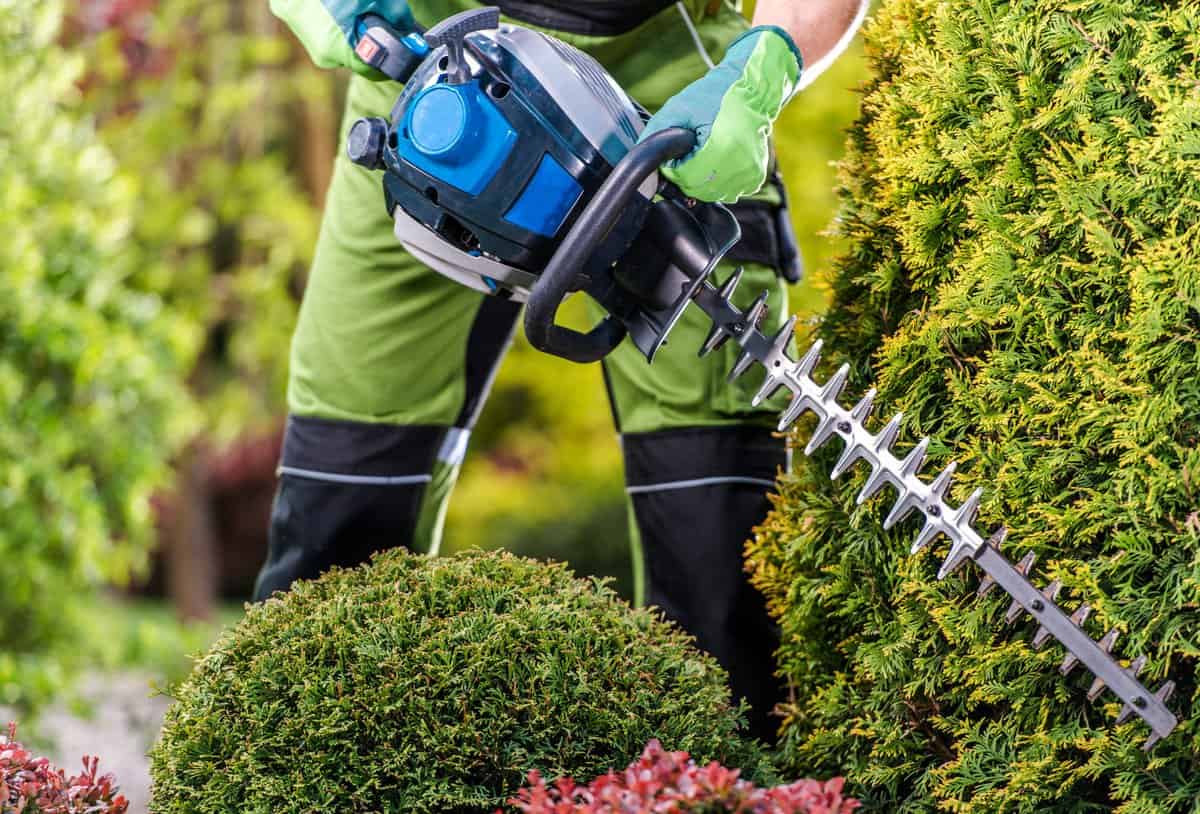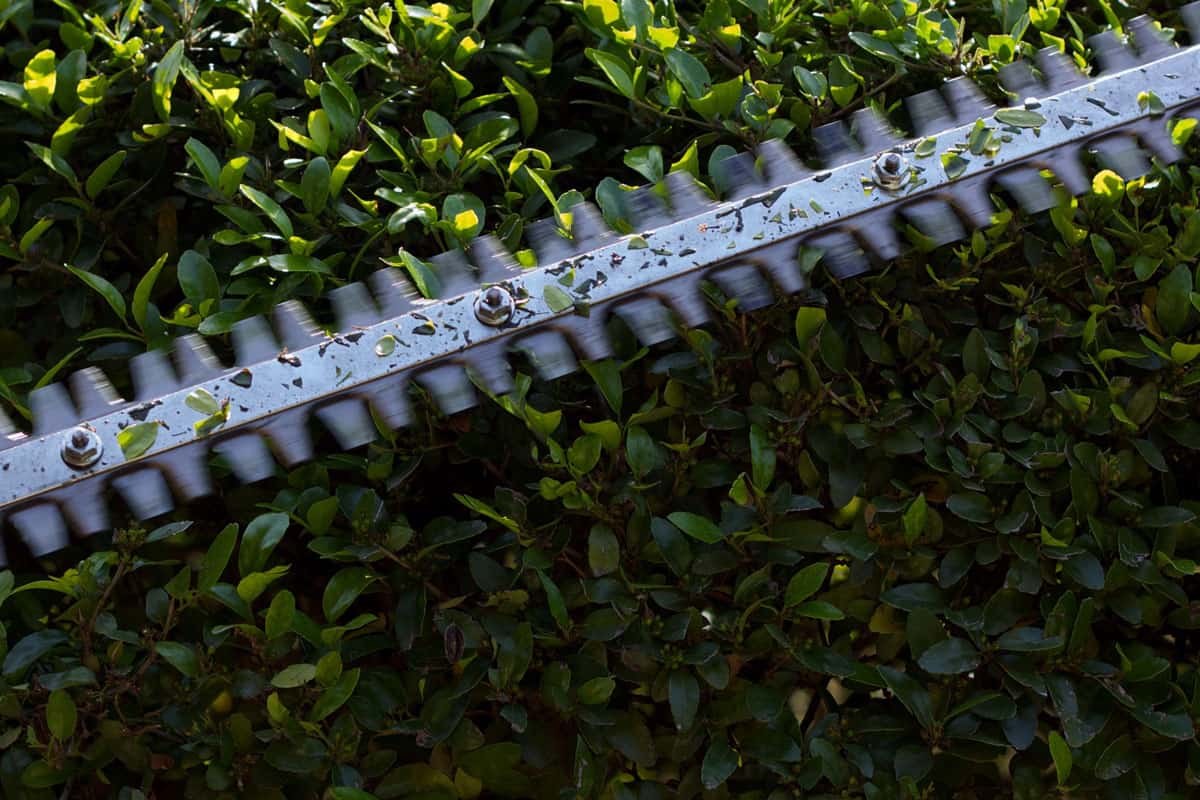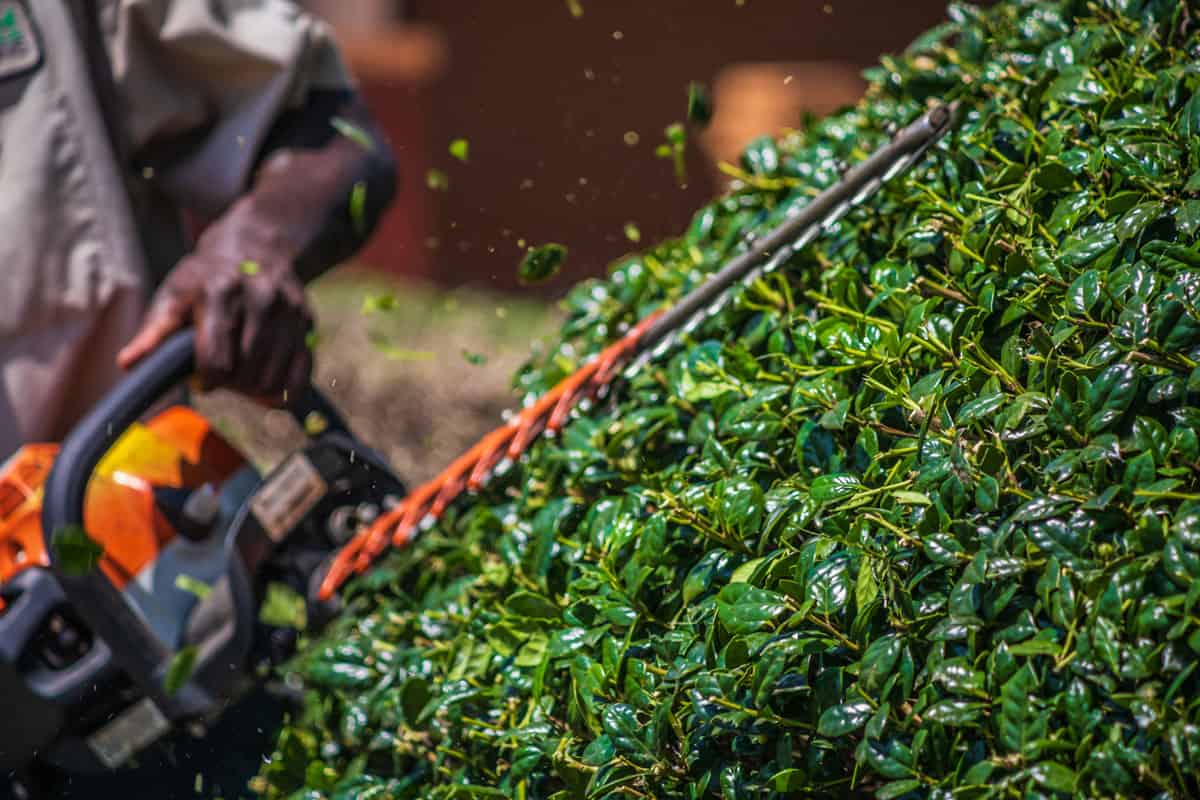Every owner is responsible for taking care of garden-related tools. In this post, we'll share a guide for lubricating and maintaining one of the most used garden tools, the hedge trimmer.
You can keep your hedge trimmer in good condition with the correct lubrication. Here are the steps to follow to lubricate the trimmer:
- Choose the right type of lubricant
- Clean the hedge trimmer
- Apply a few drops of oil to the moving parts
- Spray oil on metal parts
- Remove excess moisture
In this guide, we will discuss everything you need to know about how to lubricate a hedge trimmer so your tool can stay in top condition. Keep reading to learn more!
5 Easy Steps for Lubricating Your Hedge Trimmer

Follow this oiling procedure for your hedge trimmer:
1. Choose the Right Type of Lubricant
Different trimmer models require different types of lubricant. Consult your owner's manual to purchase the correct lubricant. You should make sure that your chosen product is designed for your hedge trimmer.
Also, consider purchasing oil that is good for the environment and non-toxic to plants and animals.
2. Clean the Hedge Trimmer
You can prepare your hedge trimmer by cleaning it thoroughly with a damp cloth or brush to remove dirt, sap, and other substances on the surface.
This will help to prevent any residue from entering the inner parts of the machine as you lubricate it.
Most importantly, ensure that all trimmer parts are dry before the lubrication process.
3. Apply a Few Drops of Oil to the Moving Parts
Use a clean rag or towel to add a few drops of oil to the moving parts of the trimmer. This includes the blades, levels, and other components with movable pieces.
Be careful not to put too much oil onto any one spot that could lead to oil buildup. This might create further problems with the overall performance of the hedge trimmer.
4. Spray Oil on Metal Parts
As for other metal parts, you may use a spray to mist them lightly. You can also apply oil to other exposed blades and cutting edges, ensuring that each surface is evenly coated with lubrication.
This will help to reduce friction and prolong the lifespan of the trimmer.
5. Remove Excess Moisture
After applying oil to the hedge trimmer, gently wipe down each metal part using a clean cloth or rag. This will help to get rid of excess moisture or oily residue.
You will prevent any build-up over time if not removed properly after each use of your hedge trimmer.
What Lubricant Should Be Used on a Hedge Trimmer?

When searching for the correct lubricant for your hedge trimmer, keep in mind that the most crucial factor is the engine type in your trimmer. This will determine what kind of lubricant you need.
3-in-1 oil or SAE20 engine oil is best suited for hedge trimmers with two-stroke engines.
Check out this SAE 20 engine oil on Amazon.
3-in-1 oil combines motor oil, gear lube, bar, and chain oil in one bottle, making it an ideal choice for engines as it coats the internal parts with three lubricants.
This ensures that the engine is protected from wear and tear over time. SAE 20 engine oil is also great for reducing friction between moving parts and keeping them functioning well.
SAE 20 can dissipate heat more efficiently than its lower-viscosity counterparts, such as SAE 10 or 5W30 oils.
It is a better choice for warmer weather conditions when temperatures can cause a buildup of heat in the engine components.
Whichever option you choose, be sure to check your owner's manual for recommendations.
How Often Should I Lubricate My Hedge Trimmer?

Lubricating your hedge trimmer regularly will ensure it stays sharp and cuts quickly and will prevent premature rusting or wear of internal parts.
It is vital to lubricate before and after each use to keep the trimmer working properly and extend its life span.
After each use, inspect the trimmer for any debris or clippings that may have gotten stuck in the blades. These items can impede the trimmer's performance over time.
Before using your trimmer again, remember to apply a few drops of light machine oil to the blade's cutting edge. This will help to protect against rust and provide some lubrication for a smoother operation.
You should lubricate the drive shaft with high-quality oil for outdoor power equipment.
Doing these steps regularly can help reduce wear on the hedge trimmer's vital components, so you can expect it to function well for years down the line.
How To Tell If Your Hedge Trimmer Needs Lubrication

Here are the top five clues that will warn you to apply lubricant to your hedge trimmer:
1. Unusual Noises
If your hedge trimmer is making any noises that are out of the ordinary, like squeaking or grinding, chances are you need to lubricate it. This is especially the case if the noise increases when you move the blades back and forth.
2. Difficulty Starting
Another indication that you should lubricate your hedge trimmer is if it has become increasingly challenging to start up. This could be an indication that some engine parts need more lubrication.
In this case, the engine can seize up and make it harder for the engine to turn over.
3. Too Much Vibration
If your hedge trimmer is vibrating more than usual, it could be a hint that it needs to be lubricated. The vibrations may feel more intense in certain areas or on one side versus another, which can indicate where there is not enough lubricant present for proper operation.
4. Rust on Blades
Another sign your hedge trimmer might need extra oil is the presence of rust on shafts and blades. Rusty blades will not cut efficiently. The blades must be kept clean and well-lubricated to work in optimal condition.
5. Increased Heat Output
If you notice that the motor of your hedge trimmer is getting hotter than usual when in use, this could also be a sign that there is insufficient lubricant between moving parts.
Adding oil helps the parts function correctly without generating too much friction or heat output.
What Happens If I Don't Lubricate My Hedge Trimmer?
![Woman using electric hedge trimmer for shaping overgrown bushes at garden scaled, How To Lubricate A Hedge Trimmer [Step By Step Guide]](https://gardentabs.com/wp-content/uploads/2023/01/How-To-Lubricate-A-Hedge-Trimmer-Step-By-Step-Guide.png)
If you do not lubricate your hedge trimmer regularly, several potential problems could arise:
1. Dull Blades
Without proper lubrication, your blades will become dull faster than normal. So, you will have to spend extra time sharpening them every few months.
2. Higher Risk of Damage
There might be further problems if you miss lubricating your trimmer. This is due to the increase in friction between the moving parts.
3. Overheating
Since many hedge trimmers use electric motors, inadequate lubrication can lead to an increased risk of overheating, causing permanent damage over time.
Benefits of Lubricating Your Hedge Trimmer
Here are the pros of keeping your hedge trimmer well-lubricated:
1. Prolong Lifespan
Regular lubrication can prolong the life of your hedge trimmer. This can even save you time and effort in the long run for multiple repairs and part replacements.
2. Better Cutting Performance
Keeping all the moving parts well-oiled helps to ensure they move smoothly without binding or sticking. As a result, you can cut faster, neater, and more efficiently.
3. Lower Maintenance Costs
Taking just a few minutes to oil your machine every once in a while could save you quite a bit of money in the long run! You can save on costs such as purchasing new blades or repaying for repairs.
4. Easier Starting
A well-lubricated engine will require less effort to start than a dry one. With a good engine, you should be able to use your trimmer more efficiently.
5. Improved Safety
Keeping the hedge trimmer's components properly lubricated helps to minimize wear on these parts, which can lead to accidental breakage during operation.
By avoiding such issues altogether through regular maintenance, you will be helping yourself stay safe while trimming away.
Final Words
In the end, lubricating and cleaning your hedge trimmer can save you from lots of hassle in the long run.
Regardless of the type of trimmer you have, taking care of it is essential to keeping your hedges looking neat and healthy. Follow the steps we detailed above to lubricate your machine in no time.
For more tips and tricks on maintaining your garden tools and equipment, see our posts below:

